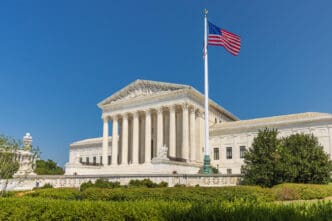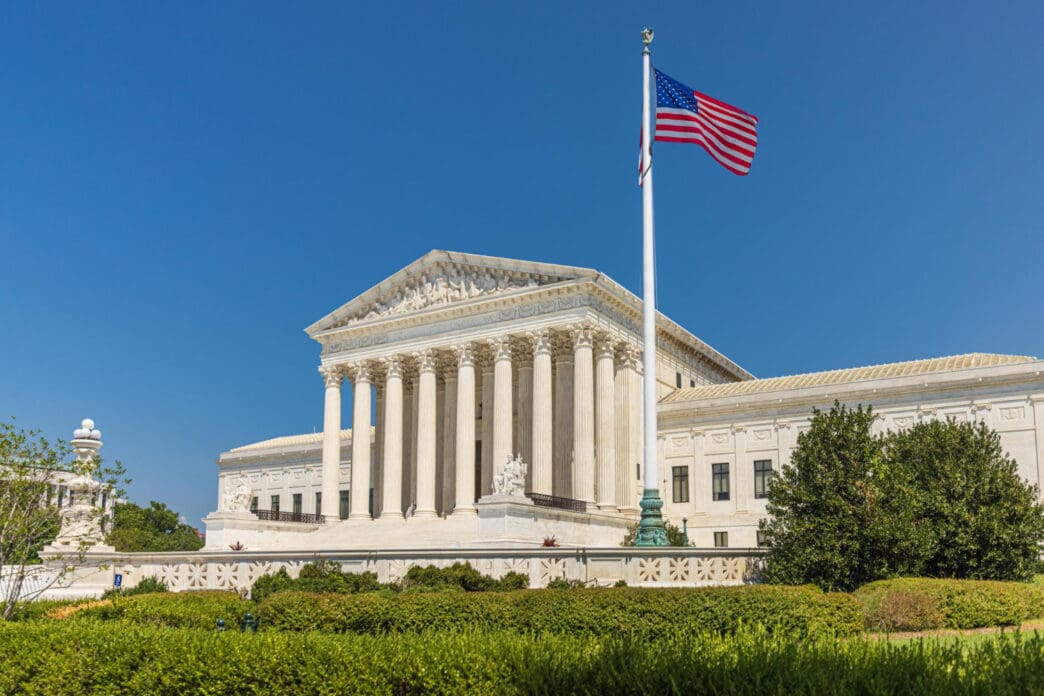Executive Summary
The Story So Far
Why This Matters
Who Thinks What?
The Supreme Court is set to review the legality of tariffs imposed by President Donald Trump, which lower courts have deemed unlawful. Arguments are expected in November concerning the “Liberation Day” and “trafficking tariffs,” initially challenged for lacking sufficient congressional authorization. Trump’s legal team will contend that the International Emergency Economic Powers Act (IEEPA), coupled with the president’s inherent foreign affairs powers, provides a legitimate basis for these measures.
Constitutional Framework and Delegation of Power
The U.S. Constitution delineates distinct powers for trade and foreign affairs. Article I grants Congress the authority to regulate foreign commerce and set tariffs, while Article II assigns the president power over foreign affairs. Crucially, the president can only impose tariffs if Congress explicitly delegates that authority, a central point of contention in the lower court rulings now under Supreme Court review.
Historical Precedent in Trade Policy
Historically, Congress and the presidency have maintained separate roles, with Congress enacting trade laws and the president implementing them. However, a long tradition of collaboration exists, as seen with the Reciprocal Trade Agreements Act of 1934 (RTAA), which allowed President Franklin D. Roosevelt to negotiate and implement tariff agreements within statutory limits. This collaborative model evolved into mechanisms like Fast Track and later Trade Promotion Authority (TPA), which facilitated presidential implementation of trade agreements with congressional approval, lasting nearly fifty years until its expiration in 2021 under President Joseph R. Biden Jr.
Presidential Foreign Affairs Power and Tariffs
While the president’s foreign affairs power is significant, it does not independently grant authority to impose tariffs without clear congressional delegation. The Supreme Court’s 1936 decision in United States v. Curtis Wright Export Corp. affirmed that Congress could delegate authority to the president in international matters, such as prohibiting arms sales, but stressed that such delegation must be clear, bounded, and unambiguous. Examples like the free trade agreements with Israel and Jordan, negotiated by Presidents Ronald Reagan, Bill Clinton, and George W. Bush, were all based on explicit congressional grants of authority.
Key Legal Precedent: United States v. Yoshida International
A significant precedent the Supreme Court is expected to consider is the 1971 case of United States v. Yoshida International. In this instance, President Richard Nixon imposed a temporary import surcharge due to a balance of payments crisis. The measure was upheld on appeal under the World War I-era Trading with the Enemy Act (TWEA), which permitted presidential regulation of trade during a declared national emergency. However, Congress subsequently enacted legislation to restrict the TWEA’s use primarily to wartime, preventing its future application to domestic economic crises.
Arguments for Supreme Court Deference
The analysis suggests that if the Supreme Court defers to the president, it would likely involve an expansive interpretation of the IEEPA, combining the president’s foreign affairs power with declarations of national emergency. Such a decision might also consider the potential serious economic impact of suddenly losing tariff revenues. This amalgamation of reasons, the article posits, could lead to a broad reading of statutory delegation in IEEPA, potentially setting aside doctrines related to nondelegation and major questions.
Ultimately, the core issue for the Supreme Court is whether the imposition of these tariffs constitutes an impermissible transfer of authority from the legislative to the executive branch. The article emphasizes that the president’s foreign affairs power does not inherently include the authority to impose tariffs beyond what Congress has clearly delegated, upholding the long-standing principle of separation of powers in U.S. governance.








